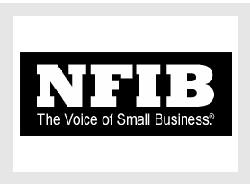Small Business Optimism Remained Over 100 in October
Washington, DC, November 12, 2019-The small business half of the economy continued its remarkable economic streak, posting a 0.6 point gain in October’s Optimism Index. The 102.4 reading was buoyed by eight of the ten Index components advancing, as talk of a recession waned in October. The Uncertainty Index declined four points but remains historically high heading into an election year.
“A continued focus on a recession by policymakers, talking heads, and the media clearly caused some consternation among small businesses in previous months, but after shifting their focus to other topics, it’s become clear that owners are not experiencing the predicted turmoil,” said NFIB rresident and CEO Juanita D. Duggan. “Small business owners are continuing to create jobs, raise wages, and grow their businesses, thanks to tax cuts and deregulation, and nothing is stopping them except for finding qualified workers.”
Key findings from October’s index included:
* The October increase was led by GDP-producing plans for job creation, inventory investment, and capital spending.
* Reports of actual capital spending increased and inventory investment improved from a modest negative level in September.
* Reports of rising labor compensation increased and remained strong historically, and the frequency of plans to raise compensation also rose in October.
* Reports of higher selling prices remained subdued, so rising labor costs are still not pushing up inflation on Main Street.
* Actual job creation in October exceeded that in September, as small businesses continued to hire and create new jobs.
Twenty-five percent of the owners selected “finding qualified labor” as their top business problem, more than cited taxes or regulations. Reports of higher worker compensation rose one point to a net 30% of all firms-a historically high reading. Plans to raise compensation rose four points to a net 22%. Firms are likely to continue to offer improved compensation to attract and retain qualified workers because the only solution in the short term to an employee shortage is to raise compensation to attract new workers and to train less qualified employees. Owners are still not passing on higher compensation costs, with only 10% reporting higher selling prices.
“Labor shortages are impacting investment adversely-a new truck, or tractor, or crane is of no value if operators cannot be hired to operate them,” said NFIB chief economist William Dunkelberg. “The economy will likely remain steady at its current level of activity for the next 12 months as Congress will be focused on other matters, and an election cycle will limit action. Any significant change in trade issues will impact financial markets more than the real economy during this period. Adjustments to a new set of ‘prices,’ such as tariffs, will take time.”
